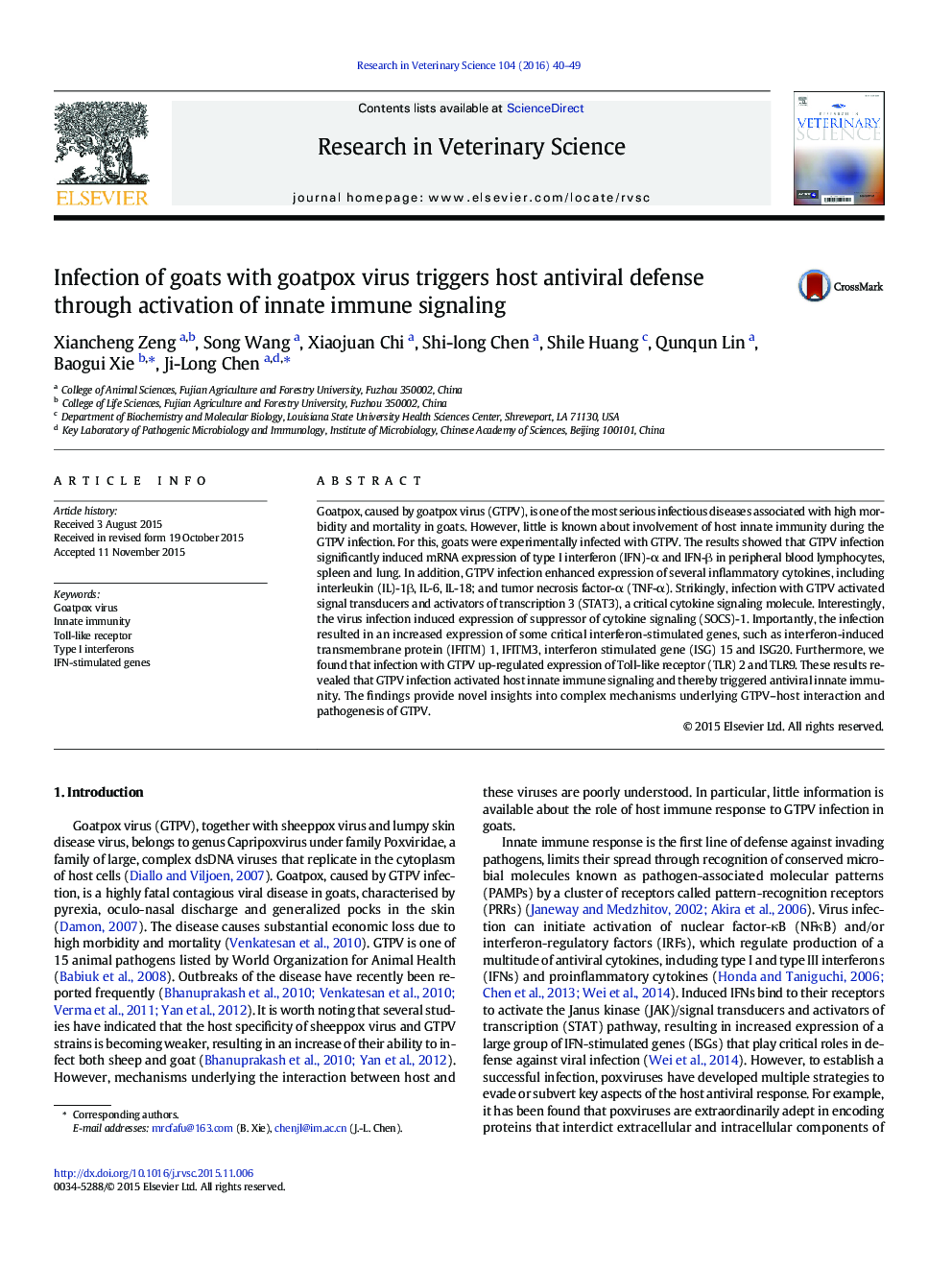| Article ID | Journal | Published Year | Pages | File Type |
|---|---|---|---|---|
| 5794548 | Research in Veterinary Science | 2016 | 10 Pages |
â¢GTPV infection activated innate immunity likely through TLR2/9-dependent pathway.â¢GTPV infection induced expression of type I IFNs and other cytokines.â¢GTPV infection activated STAT3 and induced expression of SOCS-1.â¢GTPV infection induced expression of some critical ISGs.
Goatpox, caused by goatpox virus (GTPV), is one of the most serious infectious diseases associated with high morbidity and mortality in goats. However, little is known about involvement of host innate immunity during the GTPV infection. For this, goats were experimentally infected with GTPV. The results showed that GTPV infection significantly induced mRNA expression of type I interferon (IFN)-α and IFN-β in peripheral blood lymphocytes, spleen and lung. In addition, GTPV infection enhanced expression of several inflammatory cytokines, including interleukin (IL)-1β, IL-6, IL-18; and tumor necrosis factor-α (TNF-α). Strikingly, infection with GTPV activated signal transducers and activators of transcription 3 (STAT3), a critical cytokine signaling molecule. Interestingly, the virus infection induced expression of suppressor of cytokine signaling (SOCS)-1. Importantly, the infection resulted in an increased expression of some critical interferon-stimulated genes, such as interferon-induced transmembrane protein (IFITM) 1, IFITM3, interferon stimulated gene (ISG) 15 and ISG20. Furthermore, we found that infection with GTPV up-regulated expression of Toll-like receptor (TLR) 2 and TLR9. These results revealed that GTPV infection activated host innate immune signaling and thereby triggered antiviral innate immunity. The findings provide novel insights into complex mechanisms underlying GTPV-host interaction and pathogenesis of GTPV.
